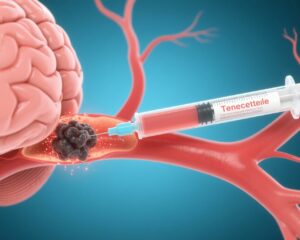Highlight
- Esketamine nasal spray alone significantly reduces depressive symptoms in adults with treatment-resistant depression (TRD).
- Both 56 mg and 84 mg doses of esketamine demonstrated rapid (within 24 hours) and sustained antidepressant effects over 4 weeks.
- Adverse events such as nausea, dissociation, dizziness, and headache were common but manageable.
- Esketamine monotherapy may provide an option for patients intolerant or nonresponsive to oral antidepressants.
Study Background and Disease Burden
Major depressive disorder (MDD) affects millions worldwide and remains a leading cause of disability. Despite numerous antidepressant options, approximately one-third of patients fail to respond adequately, constituting treatment-resistant depression (TRD). TRD is associated with significant morbidity, functional impairment, and increased suicide risk. Currently, esketamine nasal spray is approved as an adjunctive therapy with oral antidepressants for TRD. However, many patients discontinue standard treatments due to side effects or lack of efficacy, highlighting an unmet need for alternative therapeutic strategies. This study addresses whether esketamine alone, without concomitant oral antidepressants, can effectively reduce depressive symptoms in TRD patients, potentially expanding treatment options.
Study Design
This phase 4, double-blind, placebo-controlled randomized clinical trial was conducted across 51 outpatient centers in the United States from November 2020 to January 2024. Eligible participants were adults diagnosed with major depressive disorder per DSM-5 criteria, without psychotic features, and who had inadequate response (≤25% improvement) to at least two oral antidepressants during the current episode. Participants underwent an antidepressant washout period of at least two weeks before randomization.
Participants were randomized in a 1:1:2 ratio to receive fixed doses of intranasal esketamine at either 56 mg or 84 mg, or matching placebo, administered twice weekly for 4 weeks. The primary efficacy endpoint was the change in Montgomery-Åsberg Depression Rating Scale (MADRS) score from baseline to day 28. A key secondary endpoint was change at 24 hours post first dose (day 2). Statistical analyses employed mixed-effects models using repeated measures.
Key Findings
A total of 378 participants received at least one dose of study medication (esketamine 56 mg: n=86; esketamine 84 mg: n=95; placebo: n=197). The cohort had a mean age of 45.4 years, was 61.1% female, and had a severe baseline mean MADRS score of 37.3.
By day 28, esketamine recipients showed significant improvement compared to placebo with least-square mean reductions in MADRS scores of -5.1 (56 mg) and -6.8 (84 mg), both p<0.001. Effect sizes were moderate to large (0.48 for 56 mg and 0.63 for 84 mg), reflecting clinically meaningful benefit. Rapid antidepressant effects were evident at 24 hours post first dose, with MADRS reductions of -3.8 (56 mg, p=0.004) and -3.4 (84 mg, p=0.006).
Adverse events were consistent with known esketamine profiles. The most frequent treatment-emergent adverse events included nausea (24.8%), dissociation (24.3%), dizziness (21.7%), and headache (19.0%). These events were generally mild to moderate and transient. No new safety signals emerged during the study.
Expert Commentary
The present study provides compelling evidence that esketamine administered as monotherapy can induce rapid and robust antidepressant effects in a severely depressed TRD population. The moderate to large effect sizes observed underscore clinical relevance, particularly given the unmet needs in this population. Rapid onset at 24 hours post dose aligns with esketamine’s pharmacodynamics targeting glutamatergic neurotransmission, contrasting with delayed responses characteristic of traditional monoaminergic antidepressants.
However, some caution is warranted. The relatively short treatment duration (4 weeks) limits insights into long-term efficacy and safety of esketamine monotherapy. Additionally, while adverse events were manageable, dissociative symptoms remain a clinical consideration requiring monitoring. Further studies examining maintenance therapy, relapse prevention, and broader patient populations will be crucial to define esketamine’s optimal role.
Current TRD guidelines predominantly recommend esketamine as adjunctive therapy; this study challenges that paradigm and may prompt revisions incorporating monotherapy options. Mechanistically, esketamine’s NMDA receptor antagonism and downstream synaptic plasticity effects provide a biologically plausible rationale for these clinical benefits independent of oral antidepressants.
Conclusion
This phase 4 randomized clinical trial demonstrates that esketamine nasal spray monotherapy is a safe and effective treatment for adults with treatment-resistant depression. It achieves significant and rapid reductions in depressive symptoms by day 2 and maintains efficacy through 4 weeks. The findings suggest that esketamine monotherapy addresses a critical clinical gap for patients who are unable or unwilling to tolerate oral antidepressants due to efficacy or tolerability issues. Incorporating this treatment modality could substantially enhance therapeutic options and individualize care in TRD.
Future research should focus on longer-term outcomes, real-world effectiveness, and sequencing with other therapies. Nonetheless, this study marks a pivotal advancement towards diversified and patient-centered management of treatment-resistant depression.
References
Janik A, Qiu X, Lane R, Popova V, Drevets WC, Canuso CM, Macaluso M, Mattingly GW, Shelton RC, Zajecka JM, Fu DJ. Esketamine Monotherapy in Adults With Treatment-Resistant Depression: A Randomized Clinical Trial. JAMA Psychiatry. 2025 Sep 1;82(9):877-887. doi:10.1001/jamapsychiatry.2025.1317. PMID:40601310; PMCID:PMC12224050.
Kaufman J, Charney DS. Treatment-Resistant Depression: Clinical Issues and New Directions. Depress Anxiety. 2018;35(10):903-915. doi:10.1002/da.22759.
FDA. Spravato (esketamine) nasal spray prescribing information. 2024. Accessed July 2024. https://www.accessdata.fda.gov/drugsatfda_docs/label/2024/208236s011lbl.pdf
Trial Registration
ClinicalTrials.gov Identifier: NCT04599855.



